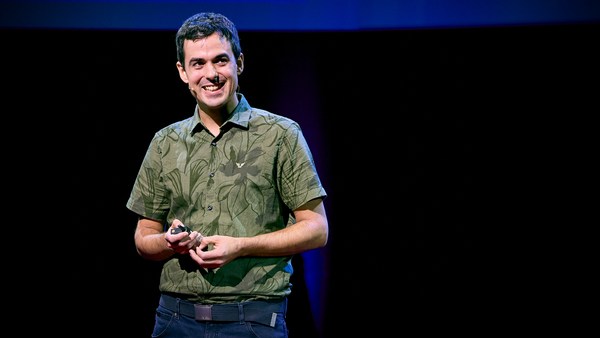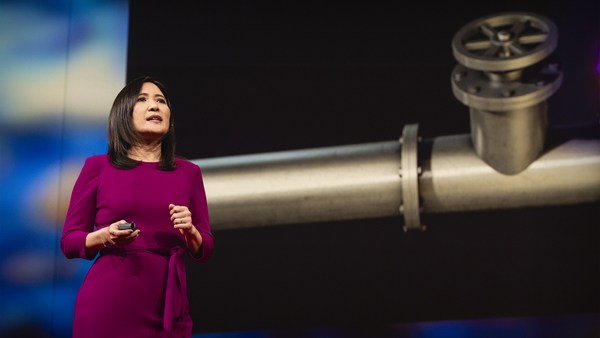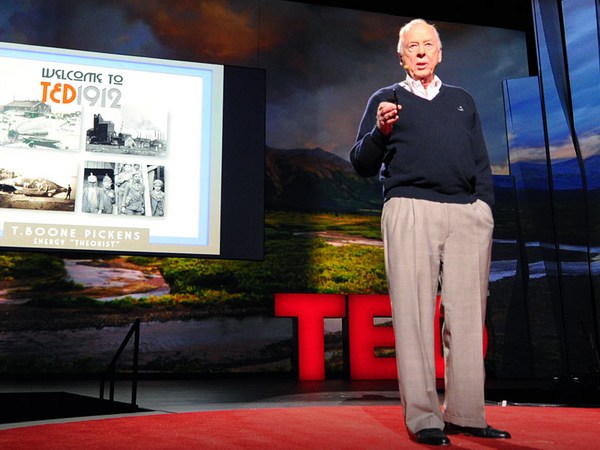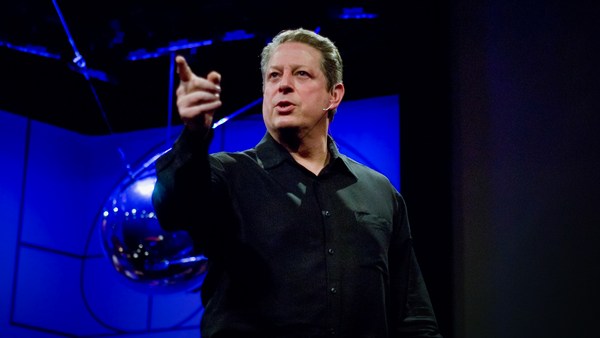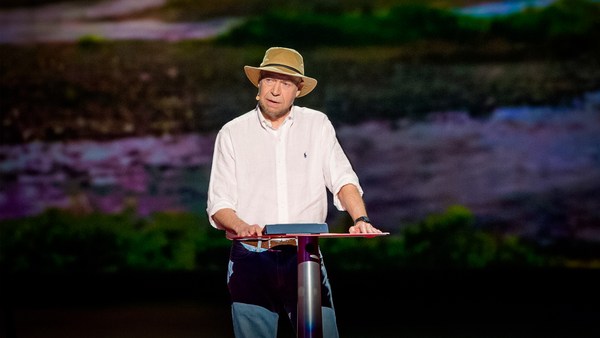(Spanish) Este es una historia de esperanza.
(English) This is a story about hope.
I grew up in Mexico City, and as a little kid, I had no clue about global climate change, the problem I'm working on in Europe today. But I did know air pollution. The smog was so thick back then that you could literally see the air you were breathing. Today, Mexico City's air is dramatically cleaner. What changed? A combination of policy and data. Mexico City started inspecting vehicles every six months, using cleaner fuels and improving energy efficiency. Mexico City's air pollution problem dropped from number one in the world to 999. I realized firsthand how this combination of smart policy and data significantly improved the air in my city. And it was clear to me: I wanted to make a career out of finding solutions to pollution.
I studied chemical engineering in Mexico and went to Austin, Texas for my PhD. And that's where I found out about the huge climate problem caused by methane, which also happens to be the main component of natural gas. In the short term, methane is more than 80 times more potent than CO2 [at] trapping heat in the atmosphere. Let's compare this year's CO2 emissions from burning fossil fuels to this year's methane emissions. As you can see, there's way, way more CO2. But this methane will cause as much warming over the next 10 years as all of that CO2.
My research team in Texas used these newer handheld devices to detect and quantify methane emissions from oil and gas facilities. This is something very important. Once you're able to know where the leaks are coming from, the solutions are extremely simple. And in most cases, they're not expensive at all.
I realized that methane pollution from the oil and gas industry is so important, that five years ago, I packed my things and moved my entire family from Texas to Europe to do something about it. But does that make any sense? I moved from Texas, which is one of the world's major oil and gas producing regions, to Europe, who is already pushing to phase out fossil fuels. What was I thinking, and why was I needed in Europe? Well let me explain.
The EU has set a very ambitious goal to become climate neutral by 2050, and this is part of the European Green Deal. Climate neutral means more than reducing greenhouse gas emissions within Europe's borders. It also means not importing products that are causing emissions elsewhere.
For example, what if oil and gas companies were releasing huge amounts of methane as they drill for the oil and gas that they want to send to Europe? The good news is that the EU recently passed a landmark law to avoid that from happening. And this is how it works. To gain access to the European oil and gas market, which today remains one of the largest in the world, companies all around the world are going to have to cut their methane emissions, just as European producers are also required to do. The details are still being sorted out, but this access to market is likely to be based on methane intensity. That is the total amount of methane emissions as a percentage of production.
For example, companies could be held to a standard of as little as two-tenths of one percent of their production. As with all policies, success depends on implementation, and the EU methane policy still needs to be implemented across the 27 member states.
Now here's something really important. How are we going to know that oil and gas companies all around the world are actually complying with this? How are we going to be able to check that emissions are really going down, which of course, at the end of the day, is what we need to see? It sounds unrealistic that we could walk around the world with those handheld devices, like the ones my team was using in Texas.
But the good news is that methane monitoring tools have significantly evolved, and scientists have developed newer sensors that work from larger distances. First from airplanes, and most recently from space.
MethaneSAT and other satellites are already scanning the globe, looking at all those different places where oil and gas production is taking place. They're already delivering accurate methane data in near-real time, which is at the heart of making the new EU methane strategy work. It also explains why the EU helped establish the International Methane Emissions Observatory, where I do some of my work. This observatory is not a telescope. It's a global data hub hosted by the UN Environment Programme, and it's already bringing together data from different satellites and monitoring tools. It will soon allow us to measure, monitor, report and verify methane emissions from different oil and gas producers in a consistent way.
The world is watching as this unprecedented public access to data promises to hold oil and gas producers accountable for their emissions. Data will make a difference, just as it did in Mexico City. And we’ve got momentum. More than 50 companies, representing 40 percent of global oil and gas production, have already committed to reduce their own methane emissions by almost 90 percent by the end of this decade. And more than 150 countries have already signed the Global Methane Pledge, committing to serious methane action.
Of course, all of this commitment and pledges need to become real. And Europe is just the beginning. Already, Japan and South Korea have formed a coalition and are also looking at methane emissions as a condition to access their own oil and gas import market. In a sense, the EU methane policy can serve as a blueprint as other countries and regions implement data-driven climate action. Even beyond methane. For example, we could look at the emission footprint from other products such as cement, steel or wood. Or we could look at other sources of methane beyond oil and gas, such as agriculture and landfills.
My day-to-day work as a scientist revolves around data, technology and policy. But I'm also a father of two little kids, which makes my hope for the future deeply, deeply personal. Picking up the pace at which we phase out fossil fuels will dramatically shape and change the world our kids will inherit, and we need to do this fast. But in the meantime, cutting methane emissions is by far the fastest way to slow warming today, having an immediate impact for the people, just as Mexico City did with air pollution, by using data and policy, when I was a little kid.
(Spanish) Y es por eso que tengo esperanza.
(English) This is why I’m hopeful, because we're using data not only to understand the methane problem, but to actually fix it.
Thank you.
(Applause)
